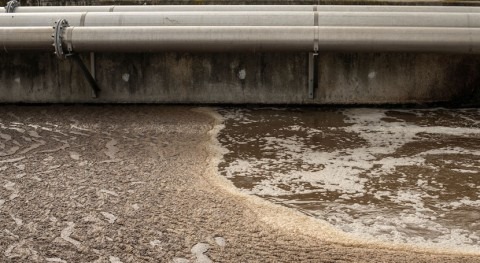Water scarcity continues to pose significant challenges worldwide, prompting a critical need for innovative solutions in water management. In a recent study published in Applied Water Science, researchers from Emuasa, the water utility serving the city of Murcia in Spain, from the Data Science and Big Data Lab at Pablo de Olavide University, and the Information and Communication Technology Oriented Research Institute (INTICO) at University of Murcia, present a pioneering deep learning model tailored for short-term water consumption prediction, offering potential advancements in water use optimisation.
The study underscores the escalating demand for sustainable water management practices amid growing population pressures and economic development. Entities in charge of managing the drinking water supply often serve the instantaneous water demand; however, being able to predict the demand in the short term could help optimise water reserves and water system operations. For example, scheduling pumping when energy prices are lower can help save costs. In fact, planning operations according to the predicted demand can lead to savings of up to 18%.
Machine learning, a subfield of artificial intelligence (AI), is used to produce forecasts by identifying patterns in large data sets, for example in flood prediction. In recent times, the large volume of time series data gathered from intelligent devices has led to the use of deep learning and the emergence of deep neural networks (DNN).
Entities in charge of managing the drinking water supply often serve the instantaneous water demand; however, being able to predict the demand in the short term could help optimise water reserves and water system operations
There are different DNN architectures, like feed forward, convolutional or recurrent networks, each tailored for specific applications or datasets. Using data from Murcia, Spain, the seventh-largest city in the country, researchers developed a deep feedforward neural network (DFFNN) specifically designed to forecast short-term water consumption patterns. By analysing a comprehensive dataset comprising water consumption measurements collected at 10-minute intervals over an eighteen-month period, the team aimed to devise a robust predictive model.
The proposed DFFNN methodology demonstrated a superior ability to capture consumption patterns with remarkable accuracy, with reported errors around 3%. In comparison to other forecasting techniques such as K Nearest Neighbors (KNN), Random Forest (RF), Extreme Gradient Boosting (XGBoost), and Seasonal Autoregressive Integrated Moving Average (SARIMA), as well as persistence models, the DFFNN model showed a significant enhancement in predictive performance.
Subsequent efforts will focus on different types of deep neural networks, leveraging knowledge transfer from diverse domains like electricity consumption. Additionally, future endeavours will focus on extending predictive horizons to encompass medium and long-term forecasting, broadening the scope of applications in water resource management.
Artificial intelligence and machine learning can offer valuable insights to optimise water systems, enhance infrastructure planning, and minimise operational costs. The research underscores the role of innovative approaches rooted in cutting-edge technologies like deep learning to drive transformative change, paving the way for a more sustainable and resilient water future.
















